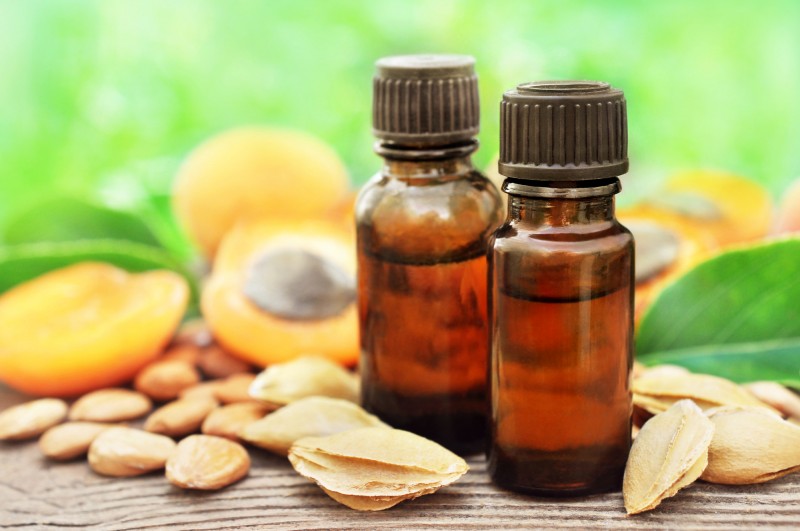Vitamin B17 has been a controversial drug since the 70s, with claims that it can both prevent and reverse cancer. However, after being banned by the FDA is this supplement really a strong choice for you?
Grab a seat and a slice of millet toast, because it’s time to learn about the benefits and disadvantages of B17 and why it might be what your diet is missing.
Where Vitamin B17 Shows Up Naturally
Like all vitamins, you don’t necessarily have to buy supplements to find them. Vitamin B17 shows up in a number of foods that you may already be eating on a regular basis. These foods include the following:
- Raw uncooked nuts, like almonds or macadamia nuts
- Seeds like buckwheat, millet or flaxseeds
- The pits of some fruits like apples, apricots, cherries or plums
- Vegetables like carrots, bean sprouts, mung beans, lime beans, butter beans and celery
However, the majority of us aren’t regularly chowing down on fruit pits or mung beans, so it helps to meet the recommended amount through supplements. Click here to buy your B17 from a trusted source.
How Does It Work
Our body takes the B17 compound and further reduces it to three separate compounds; hydrogen cyanide, prunasin, and Benza.
The leading compound among these three is hydrogen cyanide, which boasts a number of health benefits and is often credited with B17s cancer-fighting properties.
Hydrogen cyanide has also been used in the past to treat blood pressure since some findings have shown it effects on dilated blood vessels.
There are a number of theories as to why and how B17 may be used to treat cancer, with one of the predominant theories being that cyanide kills all cells, including cancer cells.
Read on to learn more about B17 and cancer, and why the treatment has become controversial.
The Difference Between Laetrile and B17
The difference between Laetrile and vitamin B17 is actually non-existent, they are really the same thing chemically. The reason why B17 is often referred to as Laetrile is that the name was patented as a drug back in 1952.
Dr. Krebs, who patented the name, also claimed in the 70’s that cancer was caused by a diet sufficiency and that B17 was the missing vitamin needed for prevention. This claim was later proven to be false. It is assumed that vitamin B17 was given the name laetrile in an effort to patent the vitamins as a supplement instead of as a medicine, so federal laws would not apply.
Benefits of Vitamin B17
Along with controversial cancer-fighting properties, B17 comes with a host of other benefits, including:
Lower blood pressure
Some studies have shown that B17 holds the potential to help stabilize systolic blood pressure by nearly 28.5%. This is impressive enough without adding in that secondary studies have found that vitamin B17 also holds the potential to lower diastolic blood pressure by 25%.
It’s important to note that to receive the greatest benefit for blood pressure from B17, it is highly recommended that the supplement is taken in unison with vitamin C.
Pain Relief
There may also be pain relief properties associated with B17. Over the years, several different animal studies have been conducted that produced evidence of B17 reducing pain associated with common inflammatory conditions. These conditions included arthritis, muscle and joint pain.
While the findings are strong it’s important to note that only animal studies have been conducted so far, and no human studies have currently happened. However, that shouldn’t stop you from turning to a bowl of millet instead of an aspirin for your next headache to see for yourself!
Boost Immunity
A strong immune system is vital for day to day functioning, especially once the seasons begin to change and the kids go back to school. Fortunately, B17 may be able to help you avoid your next cold. A recent test tube study showed that amygdalin (one of the compounds found in B17) had the ability to not only boost immunity to general conditions but to even adhere to prostate cancer cells.
With prostate cancer being one of the leading killers of men today, this is a vital finding.
Laetrile as a Cancer Treatment
One of the most controversial uses of B17 (or laetrile) is its use as a potential cancer treatment. While it was considered a popular cancer treatment method in the 70’s, the Food and Drug Administration has now banned its use due to the extreme side effects.
It has also been argued that not enough evidence had been produced to prove that B17 can effectively treat cancer.
In fact, in two separate animal studies, it was shown that when treated with B17 alone, the vitamin had little to no effect on cancer.
Side Effects of B17
So what are these harsh side effects that landed Laetrile on the FDA’s banned list?
Some side effects include:
- Headaches
- Dizziness
- Liver Damage
- Low blood pressure
- ptoses
- Nausea or vomiting
- Blue like skin as a result of oxygen deprivation
However, these side effects typically only arise if the supplement is taken in high doses, so taking a daily vitamin or sprinkling some flaxseed into your smoothie isn’t likely to cause any problems. If you are concerned about the side effects associated with vitamin B17, simply take it with vitamin C which has been known to counteract it’s negative side effects.
Bringing Out the Best Health in You
Daily supplements like vitamin B17 are a vital part of maintaining your overall health, however, it’s not enough when done on its own.
If you’re looking to tap into and maintain the best health of your life, this is best obtained through a combination of a healthy diet and exercise routine. You can find out about these by reading our blog!
By making turning these little changes into daily habits, you’ll quickly find that you’ve taken on a healthier lifestyle that will continue to reward you for years to come.











